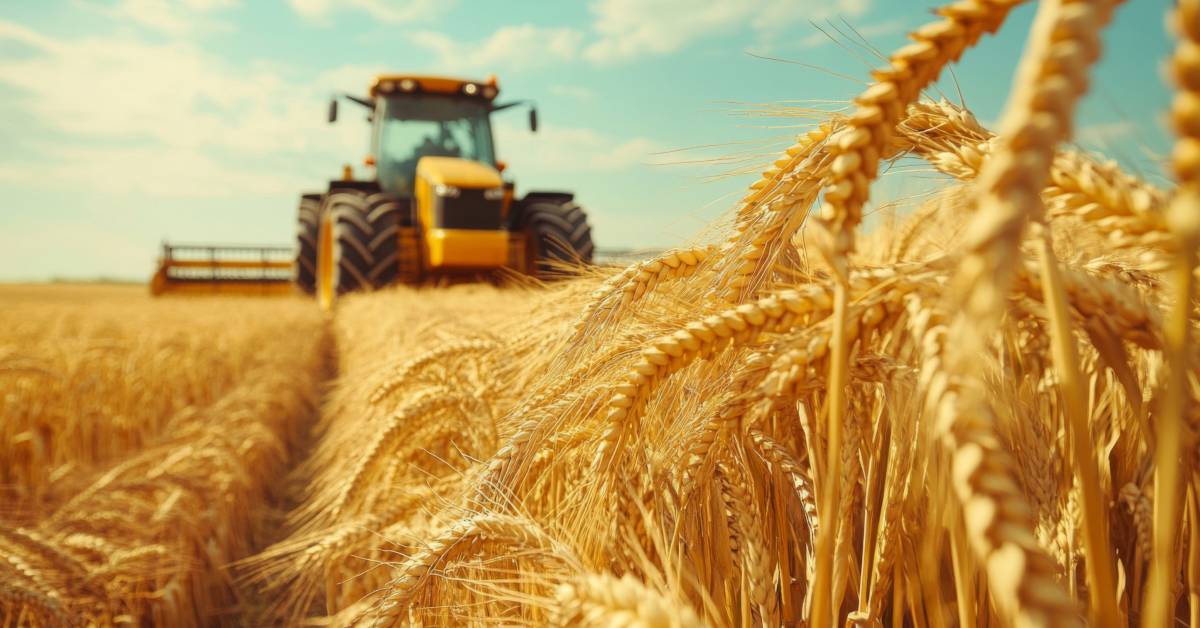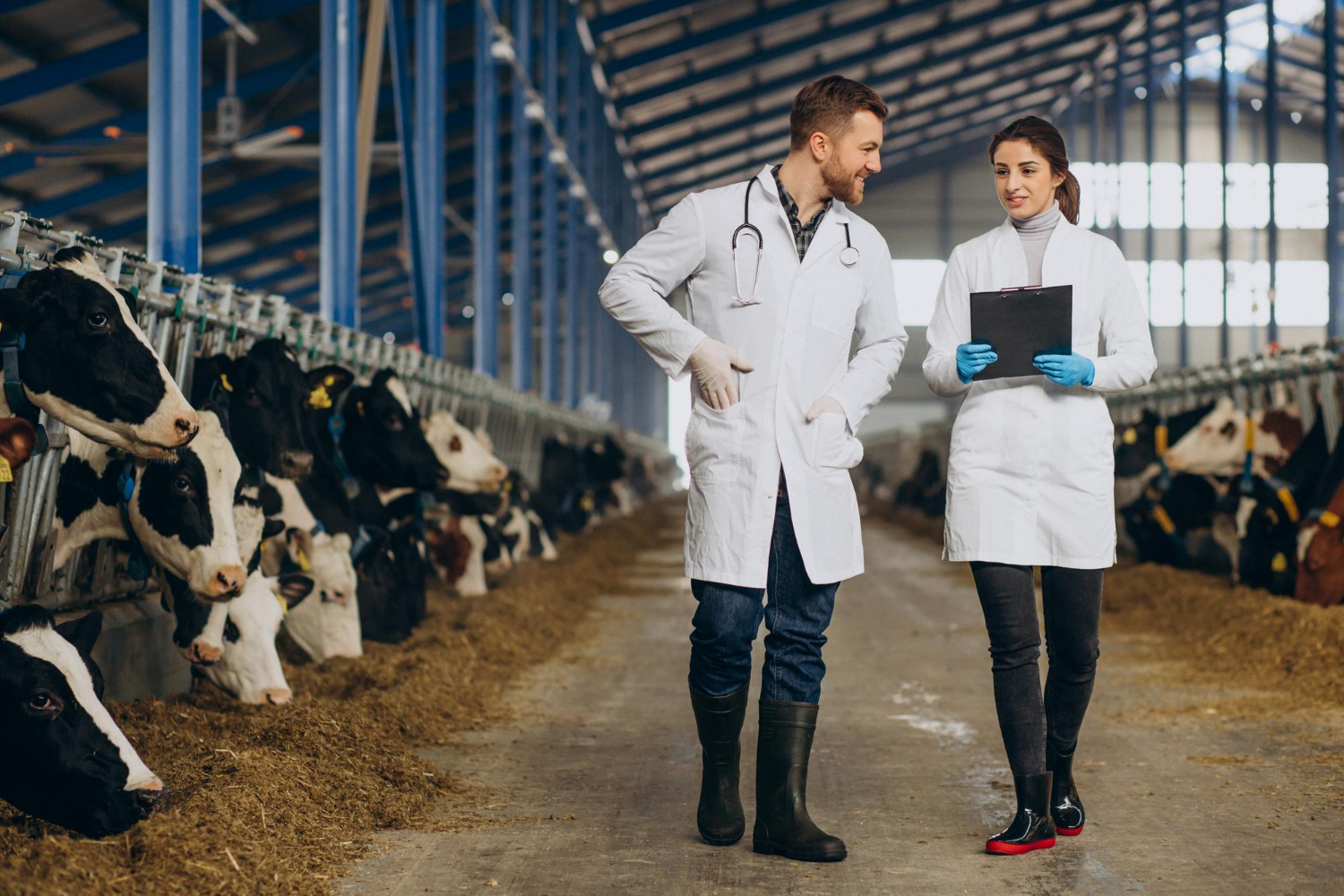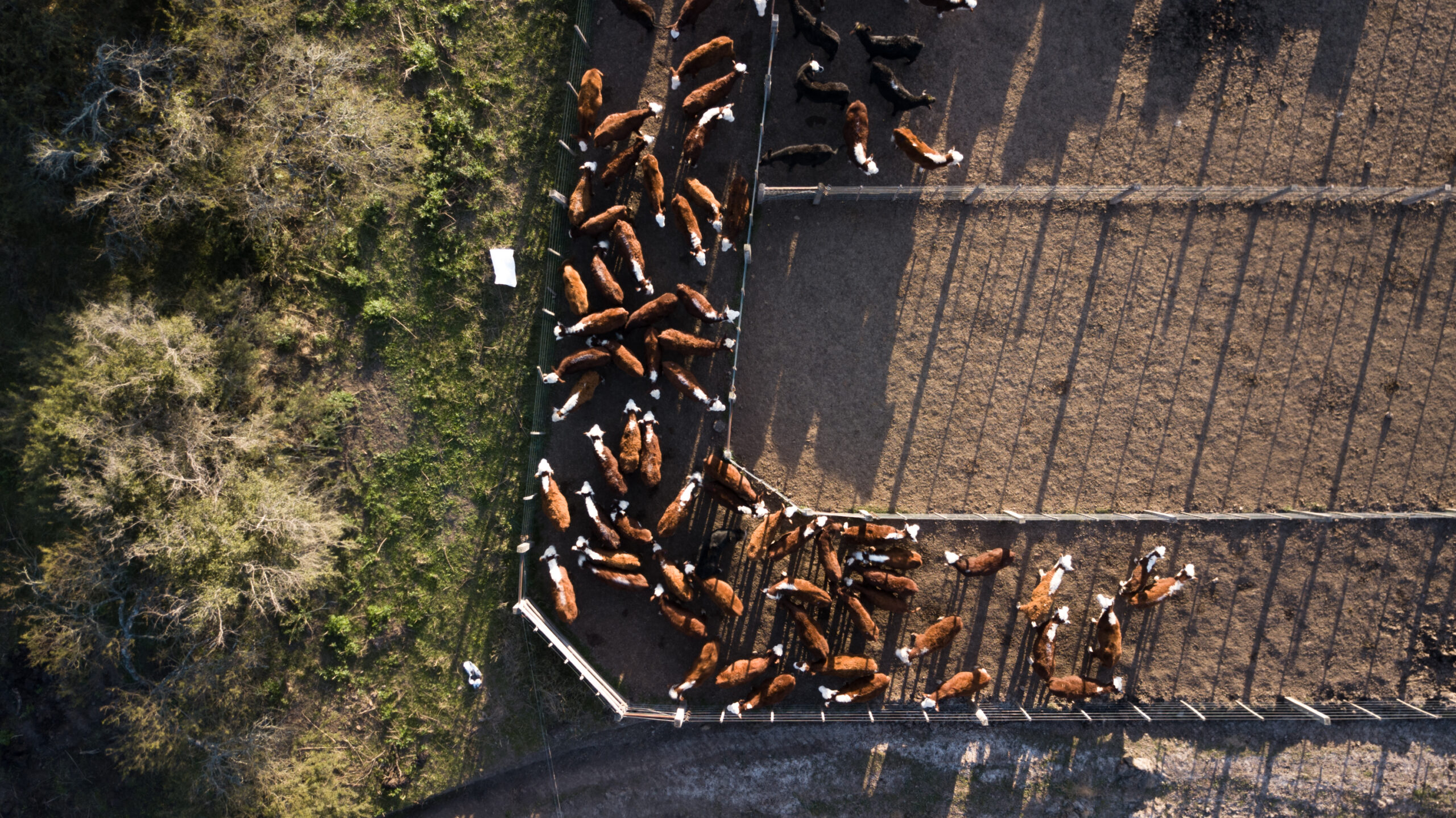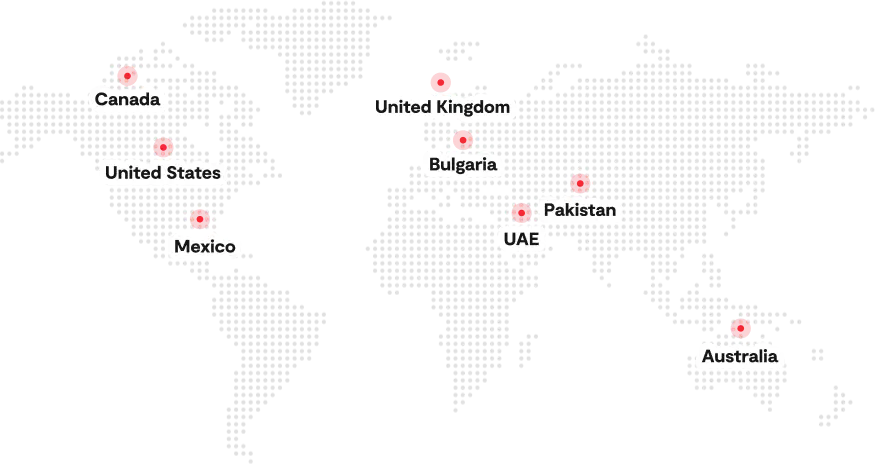Sustainable crop production is now a business necessity, not just an environmental initiative. Rising global temperatures, shrinking natural resources, and increasing demand for food are reshaping decisions across farms and agribusinesses. For farm operators, this means managing higher risks and tighter margins while maintaining productivity. Agronomists are under pressure to deliver precise, data-driven solutions, and agribusiness executives must balance profitability with long-term resilience.
Agricultural productivity today is estimated to be 21% lower than it would have been since 1961 without the effects of climate change, effectively erasing nearly a decade of progress. This stark reality highlights that climate shifts are not only environmental challenges but direct threats to food security and farm profitability.
Sustainability in agriculture is about more than protecting the planet. It also means healthier soils, better water use, resilient crops, and long-term profitability for farmers. By adopting sustainable practices, producers can strengthen yields while safeguarding ecosystems for future generations.
In this article, we will explore best practices for sustainable farming, common challenges farmers face, and the innovative technologies shaping a future where agriculture is both productive and environmentally responsible. We will also look at how modern tools like the Folio3 AgTech Crop Management Solution can help farmers achieve these goals more efficiently.
Understanding Sustainable Crop Production
Sustainable crop production focuses on growing food in ways that protect natural resources, support farmer livelihoods, and meet the needs of future generations. At its core, this approach is built on three principles: environmental stewardship, economic viability, and social responsibility. Farmers practicing sustainability aim to preserve soil health, conserve water, and protect biodiversity while ensuring that farming remains profitable and communities benefit from agricultural progress.
Unlike conventional farming, which often prioritizes short-term yield increases, sustainable agricultural practices focus on the long-term balance between productivity and resource conservation. For example, instead of relying heavily on synthetic fertilizers and pesticides, sustainable farming emphasizes soil regeneration through cover crops, organic amendments, crop rotation, and integrated pest management. This approach reduces environmental harm while maintaining high-quality crop yields.
The global drive toward sustainable crop production has become urgent in light of climate change, resource scarcity, and population growth. This makes the shift to sustainable practices not just an ethical choice but an economic necessity. Commercial growers, exporters, and farm operators increasingly recognize that sustainability is tied to profitability. Healthier soils produce more resilient crops, efficient resource use lowers operational costs, and sustainability certifications open access to premium global markets.
As consumer demand for responsibly grown food rises, retailers and supply chains are also holding producers accountable for their environmental footprint. For modern farmers, adopting sustainable crop production practices is no longer optional; it is a strategic move to stay competitive while protecting land for future generations.
Practices That Make Crop Production More Sustainable
Sustainable crop production requires practical, science-backed farming techniques that work with nature rather than against it. Farmers around the world are adopting strategies that not only improve yields but also protect long-term soil and environmental health. Here are some of the most impactful practices driving this shift:
Soil Health Management
Healthy soil is the foundation of sustainable crop production. Farmers are prioritizing methods that restore, maintain, and improve soil fertility and microbial life. Crop rotation is a key technique, helping to break pest and disease cycles while replenishing nutrients naturally. Cover cropping, where farmers plant crops like clover or rye during off-seasons, protects the soil from erosion, adds organic matter, and improves water retention. Reduced tillage or no-till farming further preserves soil structure, minimizes carbon loss, and encourages beneficial soil organisms. By focusing on these strategies, farmers create a resilient foundation for crops, reducing dependence on synthetic fertilizers over time.
Water Conservation
With water scarcity becoming a growing concern, sustainable farming practices emphasize precise water use. Precision irrigation systems, such as drip or sprinkler irrigation, ensure that crops receive water exactly where and when they need it, minimizing waste. Rainwater harvesting offers an additional solution, capturing and storing rain for irrigation during dry spells. Farmers are also investing in drought-resistant crop varieties that thrive with less water, helping maintain productivity in unpredictable weather. Together, these methods help farms conserve one of agriculture’s most valuable resources while reducing costs.
Integrated Pest Management (IPM)
Integrated Pest Management focuses on controlling pests in ways that minimize environmental impact and chemical use. Farmers practicing organic pest control methods introduce natural predators like ladybugs or predatory wasps to keep pest populations in check, reducing the need for pesticides. Planting a diverse mix of crops also helps disrupt pest habitats, while targeted pesticide application ensures that chemicals are used only when necessary. By combining biological, cultural, and chemical approaches, IPM improves crop health, protects beneficial insects, and helps create a more balanced ecosystem.
Nutrient Management
Fertility management is a cornerstone of sustainable crop production. Instead of applying fertilizers blindly, farmers use soil testing to understand exact nutrient needs. This enables smart fertilization, preventing over-application that can harm waterways. Organic methods like composting and manure application enrich soil health while reducing reliance on synthetic inputs. Farmers are also adopting precision agriculture tools that map nutrient variability across fields, ensuring every acre gets exactly what it needs. This not only supports crop health but also cuts input costs significantly.
Biodiversity Enhancement
Biodiversity is essential to a sustainable farming system. Farmers are increasing biodiversity by planting hedgerows and field borders that provide habitats for pollinators and beneficial insects. Agroforestry, the integration of trees and shrubs into farmland, offers shade, wind protection, and improved soil quality. Diversifying crop types creates resilience against pests, diseases, and climate challenges, reducing the risk of total crop failure. By enhancing biodiversity, farmers create thriving ecosystems that support both agriculture and the surrounding environment.
Most Sustainable Crops to Cultivate
Choosing the right crops plays a major role in building farming systems that are both profitable and environmentally responsible. Farmers looking to diversify or strengthen their operations are increasingly turning to sustainable crops that require fewer inputs and adapt well to different climates. Growing interest in plant-based proteins and specialty grains is also shaping crop selection, creating new opportunities for farmers who align their practices with market demand.
Some of the most sustainable options include:
- Pulses (Lentils, Chickpeas, Beans): Naturally fix nitrogen in the soil, reducing fertilizer use and improving long-term soil health.
- Sorghum: Thrives in dry, hot conditions and requires minimal irrigation, making it ideal for water-scarce regions.
- Millet: A hardy, drought-tolerant grain that grows well in marginal soils and supports food security.
- Barley: Low-input crop with versatility for feed, brewing, and food production, suited for cooler climates.
- Hemp: Fast-growing, weed-suppressing, and soil-enriching crop with multiple marketable products.
- Cover Crops (Clover, Rye, Vetch): Not grown for harvest but improve soil structure, prevent erosion, and enhance biodiversity.
When selecting crops, farmers should also consider regional factors. Climate conditions influence water requirements and pest pressure, while market demand affects profitability and access to buyers. Resource availability, such as soil type, irrigation infrastructure, and access to fertilizers or organic inputs, further shapes which crops thrive in a given area. Aligning crop selection with both environmental realities and market trends ensures that sustainability efforts also deliver strong economic returns.
Challenges Farmers Face in Transitioning to Sustainable Practices
Transitioning to sustainable crop production offers long-term benefits for soil health, biodiversity, and profitability, but many farmers face significant barriers when making the shift. Understanding these challenges is critical to finding practical solutions that support adoption at scale.
Upfront Costs and Return on Investment
Switching to sustainable crop production practices often requires investments in equipment, new technologies, or infrastructure like irrigation systems. While these expenses can pay off over time, the long return on investment discourages many farmers from moving away from traditional methods.
Knowledge Gaps and Limited Training Opportunities
Many farmers lack access to detailed, region-specific guidance on sustainable methods. Practical training on soil testing, integrated pest management, or water-saving techniques is not always widely available, creating uncertainty around implementation.
Limited Access to Eco-Friendly Seeds and Inputs
High-quality seeds, biofertilizers, and other eco-friendly inputs are not consistently available or affordable. This lack of access can slow adoption and limit the effectiveness of sustainable farming strategies.
Policy, Regulation, and Market Barriers
Government policies and market dynamics often favor conventional production, making it harder for farmers to earn premiums on sustainable crop production. Certification requirements can also be expensive and time-consuming, adding another layer of difficulty.
Climate Unpredictability and Pest Resistance
Changing weather patterns introduce new challenges for farmers working to adopt sustainable crop production. Increased droughts, floods, and pest pressures can reduce yields, especially for those still learning to balance ecological farming methods with environmental risks.
By addressing these barriers with targeted policies, accessible financing, and farmer-focused education, the industry can make sustainable crop production a practical reality for more growers worldwide.
Technologies Driving the Future of Sustainable Crop Production
The future of sustainable crop production is being shaped by smart farming technology that empowers farmers to make precise, data-driven decisions. As agriculture faces increasing pressure from climate change, soil degradation, and rising global demand, innovation is no longer optional. Tools like drones, artificial intelligence, biotech advancements, and advanced software systems are transforming traditional farming into a more efficient, resource-conscious process. Here’s a closer look at the technologies redefining sustainable crop production.
Precision Agriculture
Precision agriculture is one of the most significant advancements supporting sustainable crop production. Drones, satellite imagery, and IoT-enabled soil sensors allow farmers to monitor their fields in real time. GPS mapping provides accurate field data, making it possible to identify variations in soil fertility, moisture levels, and pest activity. By applying fertilizers, pesticides, and water only where needed, farmers reduce waste and environmental impact while improving yields. These precision agriculture technologies not only boost profitability but also support long-term soil health by preventing overuse of chemical inputs.
Smart Irrigation Systems
Water scarcity is a growing challenge for agriculture, making smart irrigation an essential tool in sustainable crop production. AI-powered irrigation scheduling allows farmers to optimize water use by analyzing weather forecasts, soil moisture levels, and crop growth patterns. Automated irrigation systems ensure crops receive the right amount of water at the right time, minimizing runoff and conserving this critical resource. Smart irrigation not only reduces costs but also protects ecosystems by preventing water overuse, a key factor in achieving sustainability goals.
Soil and Crop Analytics
Real-time soil and crop analytics are revolutionizing how farmers manage their fields. Portable and in-field devices can now detect nutrient deficiencies, diseases, and pests early, enabling targeted interventions. For sustainable crop production, this means fewer chemical inputs, healthier plants, and improved soil structure over time. Advanced analytics help farmers fine-tune planting strategies, optimize fertilizer application, and plan harvest schedules, resulting in more consistent yields and reduced resource wastage.
Biotech Innovations
Biotechnology is unlocking new possibilities for sustainable crop production. CRISPR gene-editing technology is enabling the development of climate-resilient crops that can thrive in extreme weather conditions, reducing the need for chemical protection. Biofertilizers and biopesticides are replacing synthetic chemicals, supporting soil health and biodiversity. Crop varieties designed for drought tolerance, pest resistance, and higher nutrient density are helping farmers meet food demands sustainably while maintaining profitability. These biotech tools are central to building resilient farming systems that can withstand the challenges of modern agriculture.
Crop Management Software
A centralized crop management software brings every aspect of farming together, from production and compliance to financial planning, in a single platform. By tracking input usage, yield data, and costs, these tools help farmers make informed decisions and plan for long-term sustainability. With accurate data at their fingertips, farmers can streamline operations, meet regulatory standards, and respond to changing market demands effectively.
Solutions like Folio3 AgTech’s crop management software provide growers with the tools they need to optimize resources and achieve consistent results. These platforms have become an essential driver of sustainable crop production, offering a clear roadmap for growth while ensuring environmental stewardship
Economic and Environmental Benefits of Sustainability
Adopting sustainable crop production practices creates measurable economic and environmental gains for farmers and agribusinesses. By using resources more efficiently, farmers can lower input costs for water, fertilizers, and pesticides, which directly improves profitability. Precision application and crop-specific strategies also lead to better yields, allowing farms to produce more with less.
Sustainability also ensures long-term soil health, preserving its fertility and structure for future planting seasons. Practices like cover cropping, reduced tillage, and crop rotation maintain a healthy ecosystem where beneficial insects, pollinators, and soil microbes thrive. These efforts reduce dependency on synthetic inputs while supporting biodiversity across farmlands.
Another major advantage is the growing demand for certified crops. Farmers implementing organic, regenerative, or fair trade practices can access premium pricing and secure contracts with high-value markets. These certifications also build consumer trust and strengthen a brand’s reputation.
Sustainability acts as a safeguard against climate-related risks. Farms using advanced water management and resilient cropping systems are better prepared to withstand extreme weather, droughts, and fluctuating market conditions. Overall, sustainable crop production is not only an environmental responsibility but also a long-term business strategy that increases profitability while safeguarding natural resources.
How Folio3 AgTech Supports Farmers in Building Sustainable Crop Production Systems
Folio3 AgTech works as both a technology provider and a strategic partner, helping farmers adopt smarter, more sustainable practices without losing sight of traditional farming knowledge. Its crop management software and precision agriculture solutions are designed to simplify operations, reduce waste, conserve resources, and maximize profitability. By centralizing data and automating key tasks, Folio3 empowers farmers to focus on crop health and long-term productivity.
Key Features of Folio3 AgTech crop management software:
- Breeding Management
- Crop Planning & Rotation
- Crop Pest Management
- Irrigation Management
- Harvest Management
- Plant Count Analysis
- Disease and Pest Identification
- Soil Condition Assessment
- Agronomic Recommendations
- Yield Estimation & Forecasting
- Grading & Sorting Automation
With these tools, Folio3 AgTech helps farmers align profitability with environmental stewardship, creating a sustainable foundation for the future of agriculture.
Conclusion
Sustainability in agriculture is no longer a choice but a necessity for farmers who want to thrive in an increasingly competitive and unpredictable market. Building a system of sustainable crop production ensures not only higher yields and profitability but also long-term soil health, resource conservation, and resilience against climate challenges. Farmers who adopt technology-driven solutions alongside proven eco-conscious practices are setting themselves up for success in a future where efficiency and environmental stewardship go hand in hand.
Innovations like precision agriculture, smart irrigation, soil analytics, and advanced crop management software give farmers the tools they need to make informed decisions and minimize waste. These technologies provide the clarity to respond to market changes, regulatory requirements, and environmental pressures with confidence.
The path to sustainability is not about making dramatic changes overnight. It is about taking consistent, well-planned steps that create lasting improvements for farms, communities, and the planet. By embracing technology and strategic farming practices today, farmers can build a stronger, more sustainable foundation for the generations ahead.
FAQs
What Are The 3 P’s Of Sustainable Agriculture?
The 3 P’s of sustainable agriculture are People, Planet, and Profit. This framework emphasizes supporting farmer livelihoods and communities, protecting natural resources and ecosystems, and ensuring farming practices are economically viable in the long term.
What Is An Example Of a Sustainable Agricultural Practice?
Crop rotation is a strong example of sustainable agriculture. By alternating crops seasonally, farmers improve soil fertility, reduce pests, and limit the need for chemical inputs, creating a healthier and more balanced farming system.
What Is An Example Of A Sustainable Crop?
Legumes, such as beans and lentils, are considered sustainable crops because they enrich the soil with nitrogen, reducing the need for synthetic fertilizers and supporting healthier soil over time.
What Is The Approach To Sustainable Crop Production?
The approach to sustainable crop production combines efficient resource use, advanced technology, and environmentally responsible practices. It focuses on soil health, water conservation, biodiversity, and smart data-driven decisions to ensure long-term productivity and resilience.





